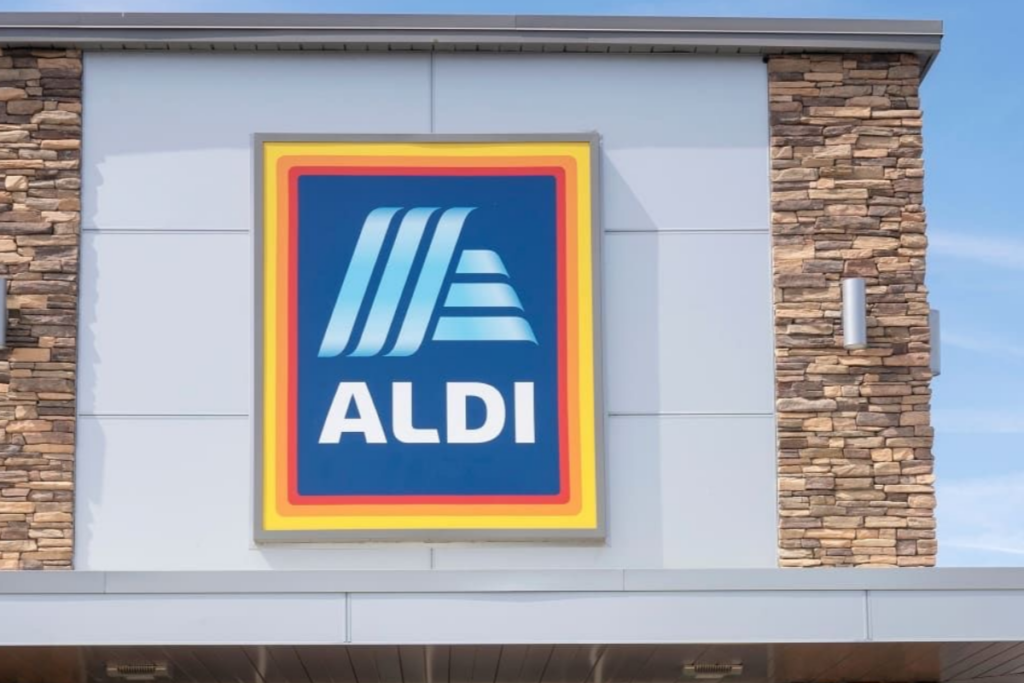People have strong feelings about how they shop for groceries. This can include when they go shopping, how they shop, and whether they prefer curbside pickup or shopping in-store. However, perhaps the most passionate opinions revolve around which grocery store is the best. Everyone seems to have a favorite store they believe is the best choice.
Aldi: A Favorite Among Certain Locals
Many people have many reasons for going to their favorite stores. Some believe their favorite store has the best quality products; some feel their choice has the best prices. Many people prefer certain stores because they always have one promo offer or the other. In general, everyone has a different reason for choosing their favorite store.
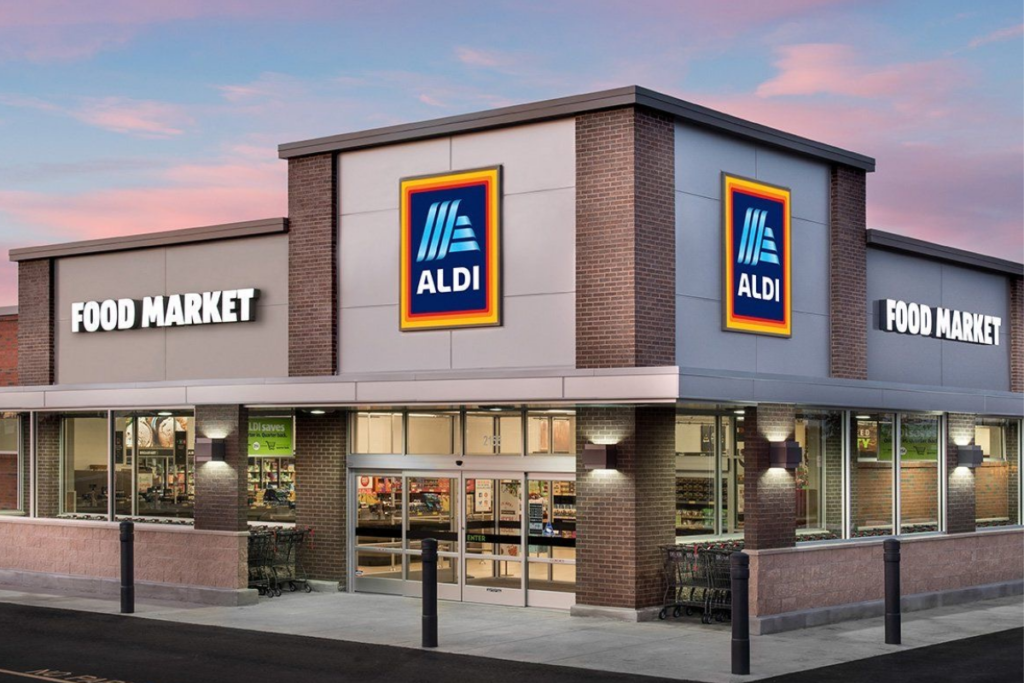
With grocery prices increasing, more people are becoming regular shoppers at Aldi. Aldi began in 1961 as a family-owned discount grocery store in Germany. Since then, it has expanded to the U.S. and now has stores in 36 states, with more openings each year.
Aldi: A Supermarket Chain that Sells 90% of Aldi Products
Aldi is different from other supermarkets for several reasons. What differentiates Aldi from other supermarkets is its focus on keeping prices low.

Aldi does this by mainly selling its own brands instead of well-known national or small brands. Partnering with brands, whether small or well-recognized, costs a lot more. According to Supermarket News, about 90% of Aldi’s products are its own brands, although this number changes.
ALSO READ: 5 Vacation Spots Out of Reach for Middle-Class Families
A Food Market with Great Prices
So, instead of familiar brand names, you’ll find items like Village Bakery baked goods, Reggano pasta sauce, and Stonemill spices at Aldi.
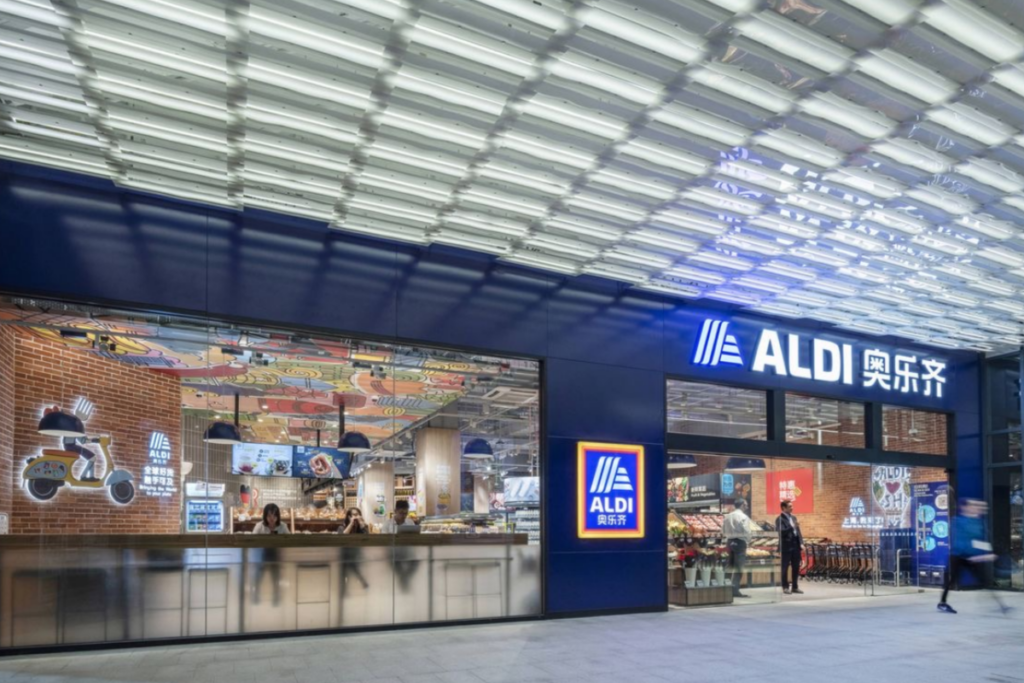
Now, these products don’t just look like big brand names; they also taste like them, but Aldi owns them. Just because the products are privately owned does not mean that they are not of great quality. Aldi makes sure of this. Even though the prices are low, they are still great.
Aldi’s Unique Business Model
When you shop at Aldi, you will notice that it feels different from other stores. This was their intent. The store has a simple design with no fancy displays. There aren’t many employees there either, so customers just walk in and bag their groceries. They also have to return their carts. This method helps prices stay low because Aldi does not have to employ and pay many workers.

The layout of each supermarket is also designed to keep traffic flowing smoothly. All these factors help the supermarket save money, allowing it to offer lower prices. Aldi believes that its customers appreciate these trade-offs for the sake of cheaper groceries.
Target and Walmart
Although the atmosphere at Aldi might be different, it is not the only big grocery store with its own brands. Other stores, like Target, have Good & Gather. There’s also Walmart, which offers great value.

But there’s something that sets Aldi apart from the rest. What makes Aldi unique is the number of in-house brands it offers. At stores like Target or Walmart, these private-label brands are just one option among many.
Aldi Sells Private-label Products
Most of the products at Aldi are their brands. A 2022 report by Numerator showed that about 20% of the food at Walmart and 30% at Sam’s Club is private-label.
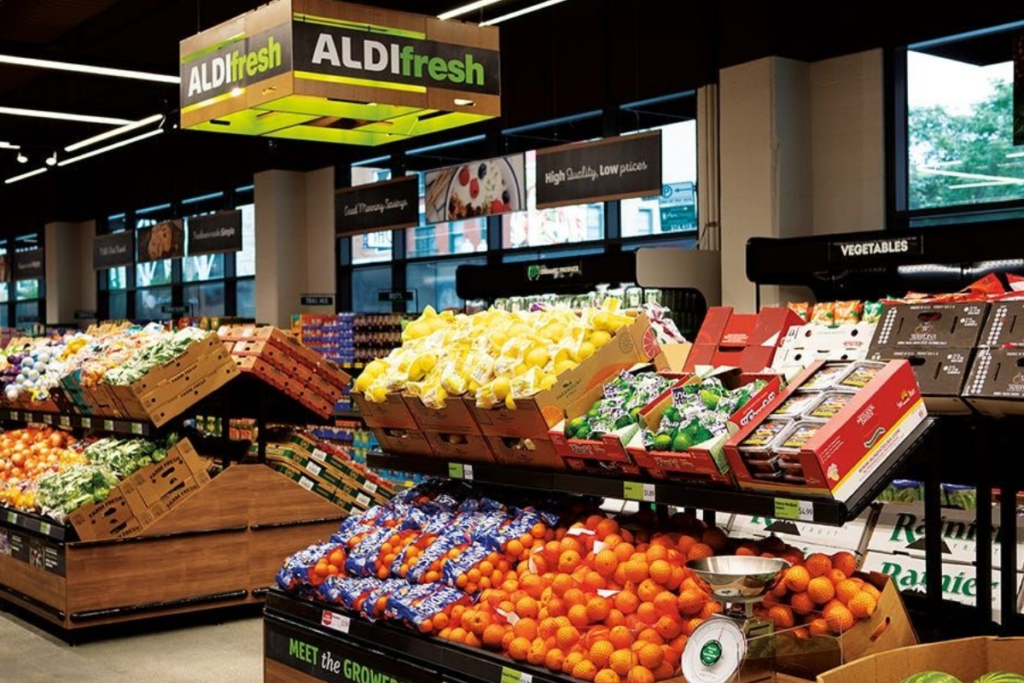
However, over 75% of Aldi’s items are from its brands. The only other store that comes close is Trader Joe’s. Trader Joe’s is also focused on private-label products to keep prices low for customers.
How Aldi’s In-House Brands Save Money for Both the Store and You
Aldi is known for being one of the most affordable grocery stores. Its focus is on selling its own in-house brands. In most grocery stores, buyers select products through a complex process, and companies spend a lot on marketing to get their brands on the shelves.
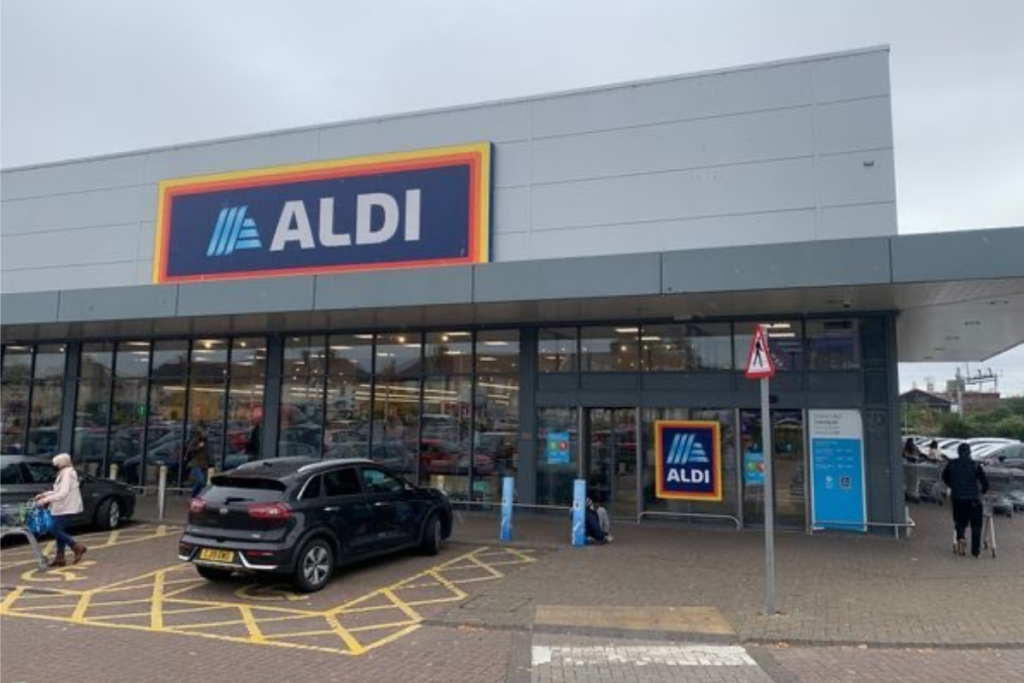
The supermarket avoids much of this by stocking its own brands, which helps keep costs down. This also means their store layouts are more straightforward, and there are fewer choices, which can make shopping more accessible and less overwhelming.
Satisfying Consumers
Recently, Aldi has been trying something different to please its customers. They started offering a small section of well-known brands to meet the preferences of some shoppers. However, these big brands only comprise about 10% of the store’s items.
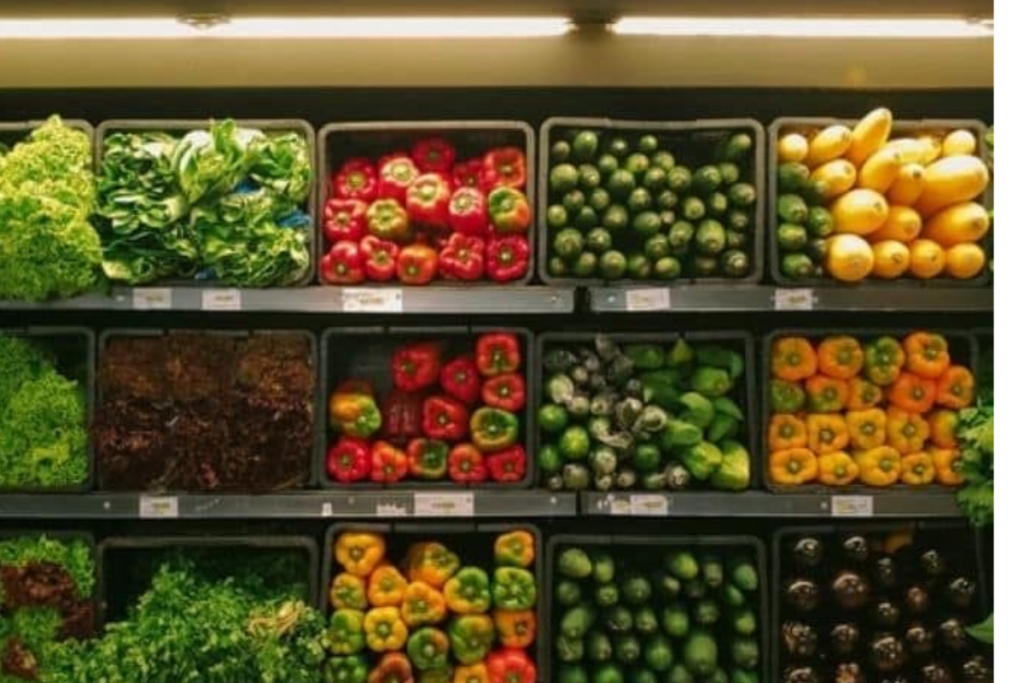
Aldi understands that their stores don’t need many name brands to attract customers. Many shoppers love Aldi for its exclusive vegan foods and other popular in-house products, from everyday items to special holiday treats.
ALSO READ: The CNBC/NRF Retail Monitor Found that Consumer Spending Rebounded in February
Cheap Yet Unique Products
Traditional grocery stores rely on customers coming in because they want to buy well-known big brands they trust. However, the supermarket is taking a different approach. Aldi focuses on creating its own delicious, high-quality products.

These aren’t just cheaper versions of other brands but unique items that stand out. Aldi believes that customers will return to their stores to buy these unique, affordable products they can’t find anywhere else.
You Might Also Like:
Citigroup Smashes Second-Quarter Expectations in Both Profit and Revenue
Google Sets To Acquire Cybersecurity Startup Wiz for $23 Billion, It’s Biggest Deal Ever
Navigating the High Cost and Mortgage Rates Faced by Prospective and Current Homeowners
Cost of Living in a Colorado Ski Town Becomes Too High
Customers Share Their Nightmarish Experiences on the Worst Starbucks Drinks Ever

